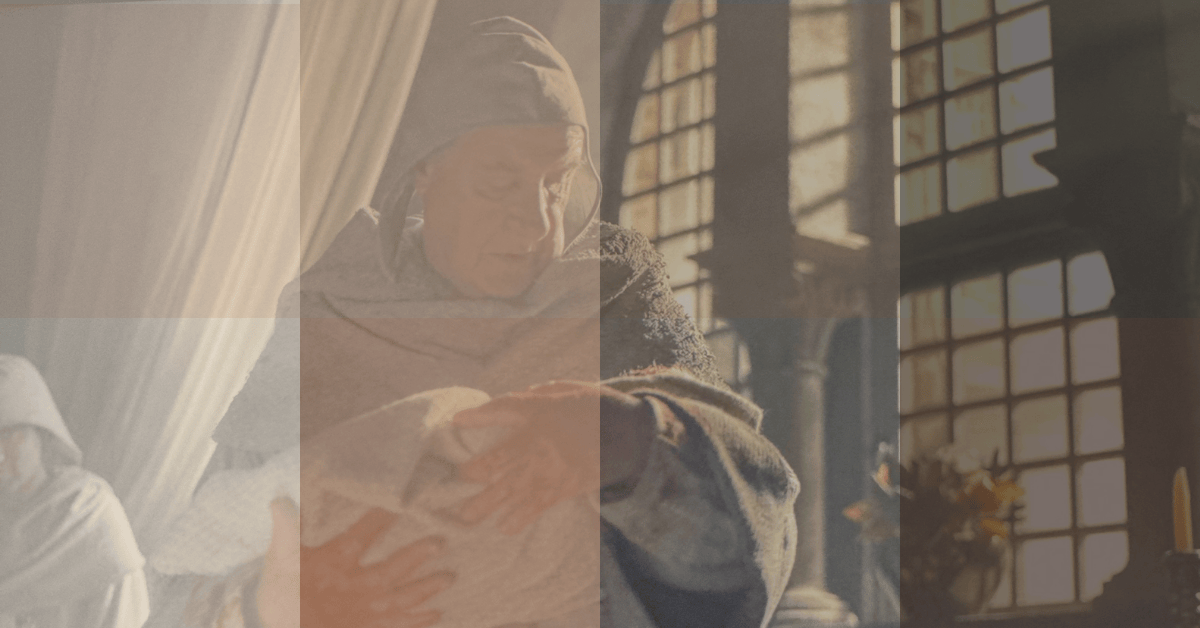HotD: The Heirs of the Dragon Review
Viserys Cracks the House of the Dragon
The premiere of House of the Dragon wastes no time showing us the cracks that will break House Targaryen apart. At the center of it all is King Viserys I. A man with a heart that desperately strives for good and a dreamer's spirit. This episode shows him set in motion the downfall of an entire dynasty.
Season 1, Episode 1: “The Heirs of the Dragon”
Director: Miguel Sapochnik | Writer: Ryan Condal
[SPOILERS BEYOND THIS POINT FOR ALL GOT AND HOTD]
my rating
8.8/10
The Iron Throne: Wound and Warning
Viserys cuts his hand on the Iron Throne. It’s a symbol that the throne itself is melted swords, sharp, dirty, and laced with danger, and in GOT lore it rejects unfit rulers. Viserys’ infection from that cut foreshadows his eventual sickness and decline.
The throne is metaphor and reality in one: heavy with responsibility and physically lethal to the unworthy. That’s Game of Thrones world-building at its best. Rich, symbolic, and super grounded.
Aemma: The First Domino
The tragedy of Queen Aemma Arryn cannot be overstated. She is pushed to keep trying for a son despite years of failed pregnancies, and in the brutal birthing scene, Viserys chooses his dream of an heir over her life. She dies. The son dies the next day.
This is the original sin of Viserys’ reign. On the surface, he is no tyrant. Viserys has a solid heart, he is a dreamer, and unlike many rulers, he is not cruel for cruelty’s sake. If Aemma had come to him after her first losses and drawn a hard boundary, maybe he would have accepted a family of three—himself, Aemma, and Rhaenyra—without pushing further. He is not a monster like Maegor before him. And yet, his flaw is that he cannot stop chasing an impossible vision: the stability of a son who will secure his legacy and heal the fractures in his house. That dream blinds him, and Aemma pays the price.
Her death is not an accident of childbirth; it is the direct consequence of Viserys’ choices and of the system that crowns men while dismissing women’s suffering. He burdens her with his longing for a male heir, even as she tells him, “This will be my last child, Viserys. I won’t endure it again.” She is right, but he doesn’t listen. By placing the dream of a son above the reality of the wife he loves, he sacrifices the very balance that might have saved his house.
If Aemma had lived, imagine the difference: her wisdom steadying Rhaenyra, her partnership tempering Viserys’ indecision, her presence preventing Otto and Alicent from tightening their claws around the throne. Instead, her absence fractures the family. Viserys keeps searching for the stability he lost with her, but he never recovers it.
In that sense, Aemma’s loss isn’t just personal—it’s political. It’s the first domino in the collapse of the Targaryen dynasty. From her death springs every fracture: Rhaenyra and Alicent’s rivalry, Daemon’s resentment, Otto’s scheming, and Viserys’ desperate, failed attempts to hold a family together. The heir-for-a-day dies, and the House begins to fall.
Daemon: The Brother He Never Trusted
Then there’s Daemon. Viserys keeps him close but never close enough. Otto Hightower whispers poison, Daemon lashes out, and the king banishes him. But here’s the real what-if: why didn’t Viserys ever make Daemon his Hand?
Daemon’s flaws, impulsive, reckless, prideful, could have sharpened Viserys’ softness. And Viserys’ compassion could have anchored Daemon’s chaos. Instead, their distance festers into resentment.
The confrontation over Daemon’s infamous words about Viserys’ dead son captures this tension perfectly:
Viserys: “Did you say it?”
Daemon: “I don’t know what you mean?”
Viserys: “You will address me as Your Grace, or I will have my Kingsguard cut out your tongue. ‘The Heir for a Day.’ Did you say it?”
(Long pause)
Daemon: “We must all mourn in our own way, Your Grace.”
Daemon is too proud to deny it, too bitter to apologize. But also there is oddly a sincerity in his voice when he says it. And Viserys, by pushing him away, ensures Daemon’s worst impulses grow unchecked.
Viserys as a tragic figure
He’s not evil, not incompetent, just human. And in this world, that’s not enough.
Rating: 8.8/10. A strong, character-driven start that shows us how the house begins to fall, not with fire and blood, but with a kind king’s quiet missteps.


